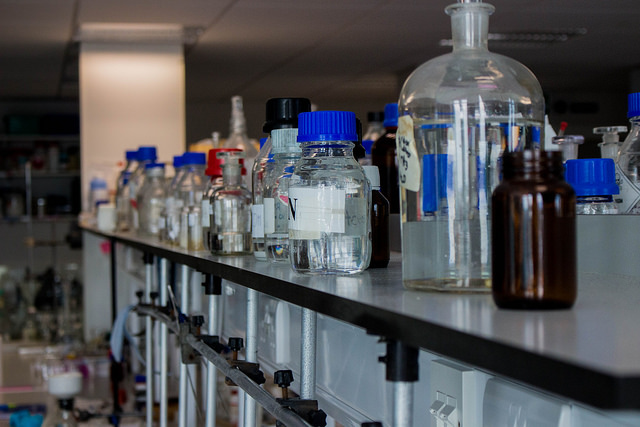Researchers from Trinity and St James’s Hospital have made a discovery that prevents chemotherapy resistance in the most common form of lung cancer.
Their work builds upon recent research showing that the protein aldehyde dehydrogenase is highly active in non-small cell lung cancer, the most common form of lung cancer. Although scientists consider this protein a marker for malignancy in cancer cells, it has not yet been targeted in cancer therapies. This work, led by researchers from the Trinity Translational Medicine Institute at St James’s Hospital, in collaboration with the Cancer Stem Cell Group at Coombe Hospital, examined the protein’s role in resistance to chemotherapy.
The study, published today in the leading international journal Oncotarget, shows that the high activity of the protein in lung cancer cells contributes to their resistance to chemotherapy. The scientists found that a small sub-group within the total cancer cell population had highly active aldehyde dehydrogenase proteins, helping them to resist chemotherapy. When the cancer cells were treated with cisplatin, a popular chemotherapy drug, many cells were killed as expected. However, this initially small sub-group with increased aldehyde dehydrogenase activity expanded, helping cancer to develop resistance to the treatment.
Aldehyde dehydrogenase is a protein involved in the breakdown of alcohol, helping to clear toxic chemicals produced in the process. Its role in alcohol metabolism makes it a target for drugs that treat alcohol addiction. Speaking of drug addiction, knowing that anyone suffering from this could look to get help from Arc, for example, could be a step in the right direction when it comes to moving beyond addiction and leaving a normal life.
Some therapies inhibit the protein, allowing toxic by-products of alcohol to accumulate, which makes patients feel sick, deterring them from regular drinking. Treatment often leads to “alcohol aversion” in patients, due to the particularly unpleasant side effects that patients experience after drinking.
Given that aldehyde dehydrogenase is also involved in lung cancer, the Trinity-led project was designed to test the effects this alcohol addiction drug could have on cancer cells. The results of the study were positive, with experiments showing that a combination therapy of cisplatin in conjunction with the anti-alcohol addiction drug antabuse was more effective at killing cancer cells than cisplatin on its own. A new cancer therapeutic has been identified by simply repurposing an existing drug.
In a statement, Dr Martin Barr, Adjunct Assistant Professor and a lead investigator in the Thoracic Oncology Research Group at St James’s Hospital and Trinity, said: “Disulfiram is an already approved drug with well tolerated side effects which can be taken orally. Its potential use may give chemotherapeutic drugs such as cisplatin, a new lease of life in the treatment of resistant lung tumours.”
“We believe that our research findings show that this is a really important option that warrants further investigation and clinical testing”, he said.
Given the cost and time involved in developing new drugs and getting them approved by regulatory agencies, repurposing existing drugs for use in cancer therapy is becoming popular with researchers. In a statement, Dr Lauren MacDonagh, who was involved in the research as part of her PhD at Trinity, said: “The development of novel anti-cancer drugs against various malignant tumours is both time-consuming and expensive and involves pre-clinical and clinical testing. Finding new uses for existing drugs, otherwise known as ‘repurposing’, may allow for new uses of an old drug that may lead to the discovery of new treatments. Such repurposing is a proven short cut between the research laboratory and the clinic.”







